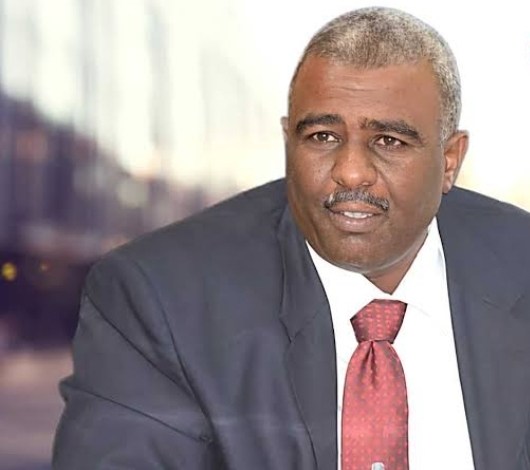The Media Claims a New Role

By Ibrahim Shaqlawi
Amidst the rapid transformations unfolding in our country, journalism stands at a crossroads, transitioning from its well-established traditional frameworks to the horizons of modern media practice, where digital content and electronic publishing techniques intersect with new challenges imposed by social media on the shaping of public opinion.
This fundamental shift raises essential questions about the future of media, its independence, and its role in our contemporary society—especially in a country like Sudan that is undergoing profound political and social changes in the post-war phase.
Last week, a workshop to amend the 2009 Press and Publications Act was held in Port Sudan at a critical moment when Sudan is experiencing swift political and digital shifts. This workshop marked a first step toward rehabilitating the media landscape and creating a legal environment that aligns with the current stage’s needs. It served as a platform to present challenges and lay the groundwork for legislative reform that keeps pace with developments and ensures the protection of press freedom within a complex new reality.
According to experts, media in Sudan is moving toward a new position—no longer merely the “fourth estate,” but filling an institutional vacuum left by the absence of an elected legislative authority during a transitional phase. In this context, the media has objectively become an active “third power” in Sudan’s current state structure.
This exceptional situation places an added responsibility on the media—one no less significant than that of official authorities. The media is now expected to serve as a watchdog, a platform for public voice, a source of awareness, and a tool for civic accountability in the absence of parliamentary and legislative oversight mechanisms. Therefore, any new media law must be based on a clear understanding of this transformation and enhance the media’s ability to perform its role effectively, without compromising professionalism or undermining its independence.
The continued absence of actual print journalism from the media scene in Sudan reflects a new reality driven by digital and technological changes. Journalists have shifted from relying on traditional tools to adopting modern strategies for producing diverse content that combines speed, effectiveness, and engagement with audiences through digital platforms. This evolution necessitates new legislation that embraces the modern concept of journalism.
Here, the importance of social networks emerges as new arenas for information exchange and public opinion formation. However, they also present major challenges, such as the loss of institutional control over content, the spread of fake news, and the decline in trust in traditional media due to the blurred lines between professional journalists and “citizen journalists” who possess direct publishing tools without professional standards. Therefore, new media legislation must take into account the demands of digital governance, combat hate speech, and ensure the quality and reliability of online media content.
Media sector legislative reform cannot be separated from the broader national political and security context. The workshop emphasized the need for a careful balance between protecting press freedom and meeting national security requirements, while respecting personal privacy and individual rights. Achieving this balance requires serious and open dialogue between the government, the media, and society to build a professional and responsible media environment—one that neither suffers from suppression nor slips into media chaos or misinformation that could serve the agendas of local or regional actors lying in wait.
The challenges facing Sudanese media today call for a redefinition of its role and responsibilities in line with political and social transformations. Media is no longer merely a conveyor of information—it is a partner in national development, a monitor of power, and a shaper of public opinion. As the late Egyptian journalist Mohamed Hassanein Heikal once said, “The media is the fourth estate, and if this power disappears, national awareness disappears with it.” This concept reflects the vital role of media in shaping public awareness and contributing to state-building.
Therefore, Sudanese media must assume its new responsibilities with seriousness and seek to strike a wise balance between freedom of expression and national security needs, between professionalism and objectivity. In the current circumstances, media is a key tool for promoting national unity by combating rumors, overcoming hate speech, conveying truth, and contributing to rebuilding the Sudanese state on foundations that promote peace, freedom, and peaceful coexistence.
Given the reality—and what we see from the #Face_of_Truth—and with rising challenges, there is an urgent need for new media legislation that keeps pace with technological developments, enhances professionalism, and lays the foundations for an independent and effective media industry. Sudan stands on the threshold of a historic transformation that requires a law that goes beyond appearances and makes a real difference in the media landscape—one that is part of a broader national project for reconstruction after the war. Between the aspirations of the people and the will of the stakeholders, the question remains: will we soon see a law worthy of this ambition?
Wishing you all health and well-being.



